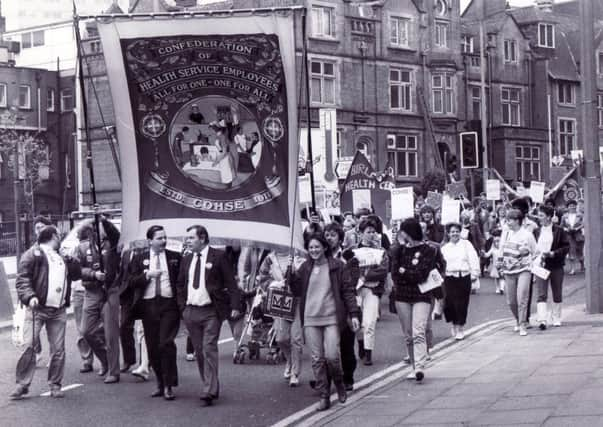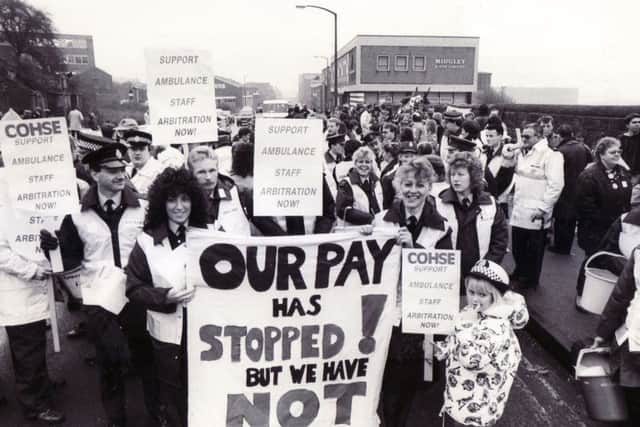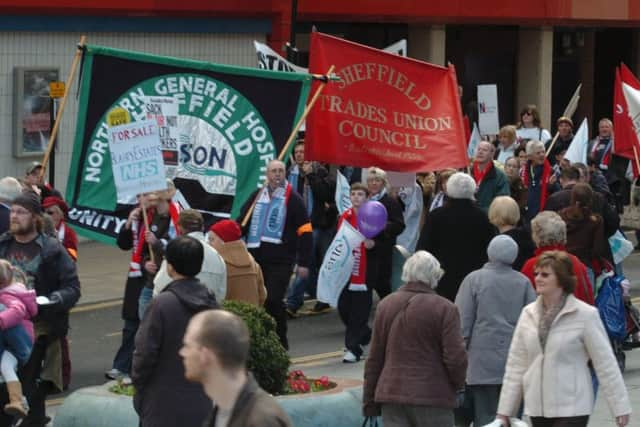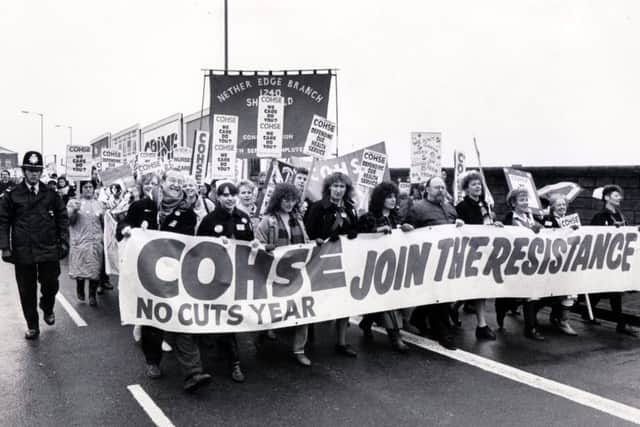Retro: When NHS staff took to the streets


Looking back in our files, there have been many protests over the years by NHS staff against changes to their jobs and pay and also defending the NHS against cutbacks.
In September 1982, miners’ union leader Arthur Scargill spoke at a rally on a day of action for the health service.


Advertisement
Hide AdAdvertisement
Hide AdThe 10,000-strong march was smaller than predicted but regional NUPE health union official Ben Curran said it was “still the biggest display of union solidarity seen in the city during the post-war years”.
Among 40,000 workers who took solidarity strikes for the day were union members at Bassett’s, Davy’s, Cravens, Shardlows, Union Carbide, Presto Tools, Firth Browns and 29 pits.
The Star reported: “Silence descended on the streets of strike-bound Sheffield - broken only by cries of ‘Maggie out’ from the thousands of workers on the march through the city centre.”
In March 1973, hundreds of Sheffield hospital ancillary workers took strike action for better pay against the Tory government’s wages policy.


Advertisement
Hide AdAdvertisement
Hide AdAs in 1982, thousands of workers in other industries in the city struck to join a mass demonstration in support of the health workers.
The Star reported that there were fewer miners than expected but engineering, foundry and building workers all supported the protest in big numbers.
Laundry workers at Sheffield Royal Infirmary were aalso ngry because volunteers were operating the laundry on the orders of chief administrator Kenneth Sumner, who declared a state of emergency during their strike.
Workers in four striking unions had rejected a call for an emergency laundry session because they said that Sheffield hospitals had stockpiles of clean linen they could use.


Advertisement
Hide AdAdvertisement
Hide AdPrime Minister Edward Heath met a TUC delegation led by general secretary Vic Feather to discuss the dispute.
Rodney Bickerstaffe, who was a South Yorkshire official for NUPE at the time, spoke out as hospital bosses claimed that workers had already agreed to return to work in response to an improved pay offer, when he said a decision had not yet been taken.
A year later, Ted Heath was swept from power when he called a general election on the question of who ran the country, the government or the unions.
NHS campaigners and trade unionists in Sheffield and around the country are preparing to join a demonstration in London in support of the health service on March 4.
For information on local transport to the protest against NHS closures, cuts and privatisation, go to #Our NHS